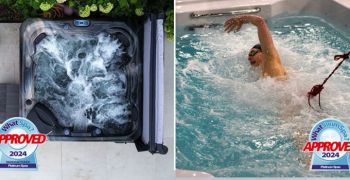.jpg)
The National Swimming Pool Foundation (NSPF) in the USA is funding the third year of a grant supporting the goal of reducing disinfection by-product (DBP) formation.
 Awarded to Purdue University in Layfayette, Indiana, the $75,000 grant includes support from the Chlorine Chemistry Division of the American Chemistry Council and a leading UV manufacturer, Engineered Treatment Systems LLC.
Awarded to Purdue University in Layfayette, Indiana, the $75,000 grant includes support from the Chlorine Chemistry Division of the American Chemistry Council and a leading UV manufacturer, Engineered Treatment Systems LLC.
The goal of the research conducted under this grant is to improve understanding of and reduce formation of DBPs, and aligns with the NSPF Board’s mission to help keep pools open by continuing to improve pool safety.
Several high-profile studies have suggested that exposure to chemicals that form in treated pools and spas as a result of the use of disinfectants (e.g. chlorine, bromine, ozone or UV radiation) – referred to as DBPs – can cause adverse health effects. DBPs are formed when disinfectants react with other chemicals, including those in bodily fluids such as urine.
Comments NSPF CEO Thomas M. Lachocki: “It is important that we do the right research to minimize any possible problems associated with DBPs so that people can enjoy the tremendous benefits of swimming, aquatic exercise and immersion,” adding, “One easy way to reduce DBPs is to reduce urine in pools.”
The NSPF is organising a 2013 initiative to help make pool water safer and more appealing. A full-day workshop will explore strategies to influence public behaviour and reduce urination in swimming pools. One in five Americans admits to peeing in the pool, according to a 2012 survey by the Water Quality and Health Council, while several high-profile Olympians have said it is “OK” to pee in the pool – with almost all elite competitive swimmers admitting to doing so.
“The October workshop is an opportunity to start a cultural shift. We strongly encourage
the community of pool users, coaches and operators to come to the October workshop and work together to improve pool safety,” added Dr Lachocki.









